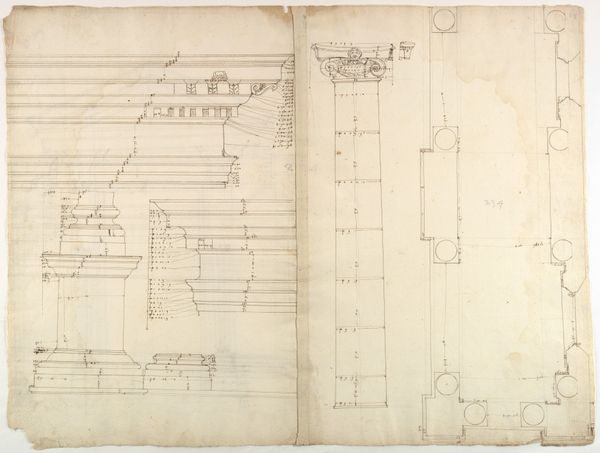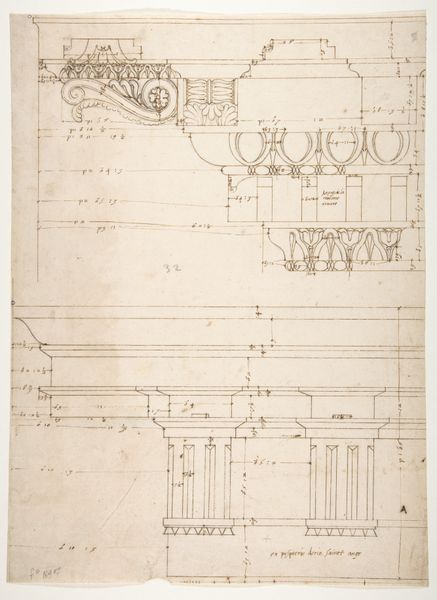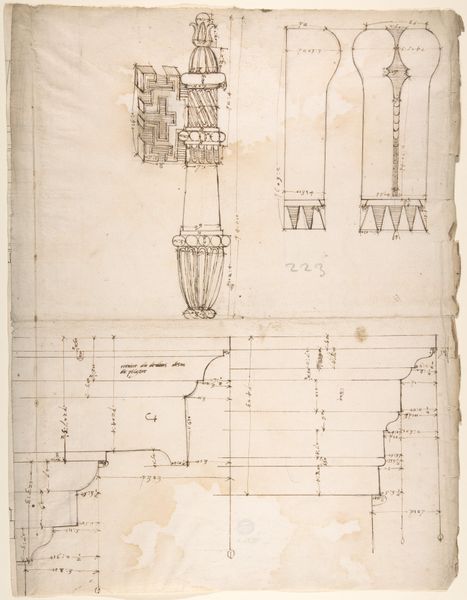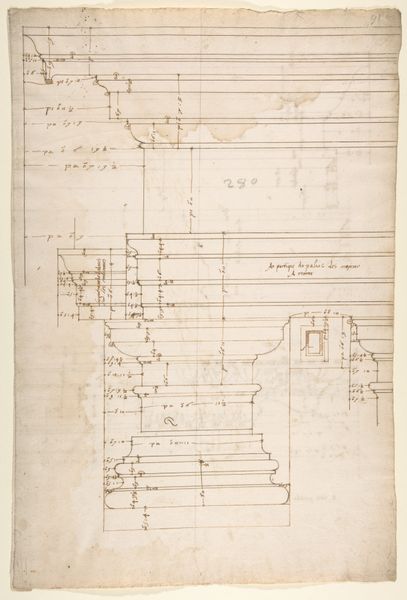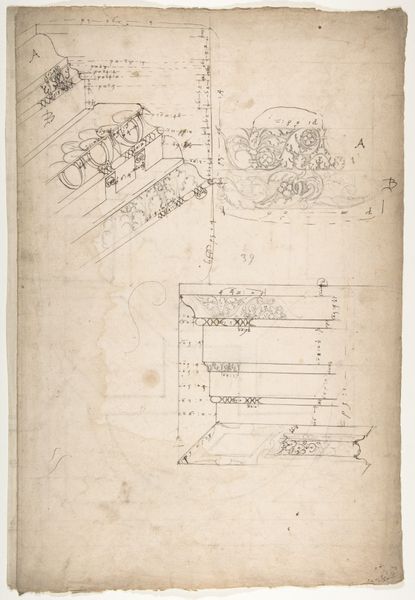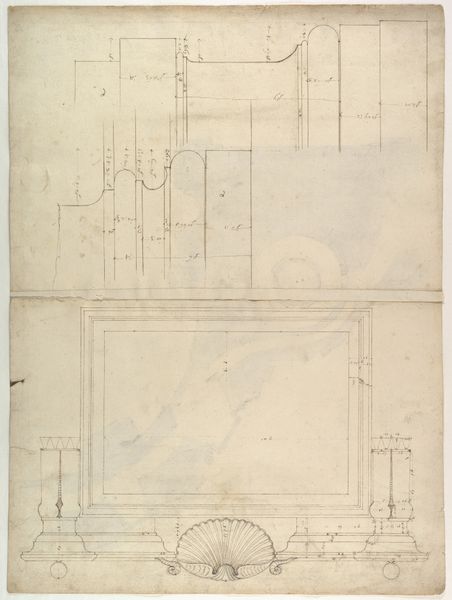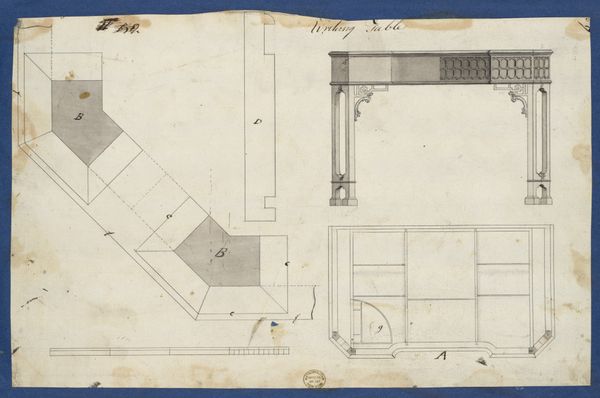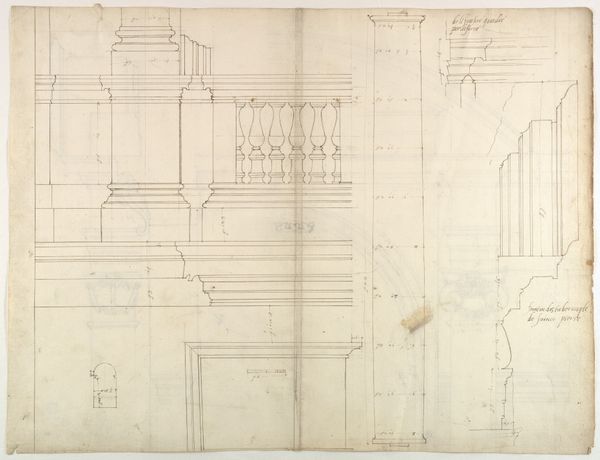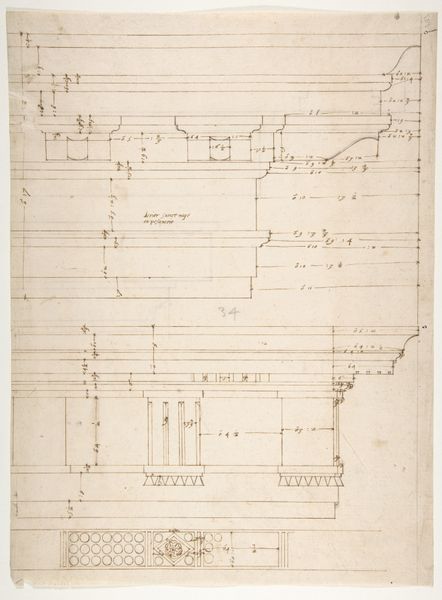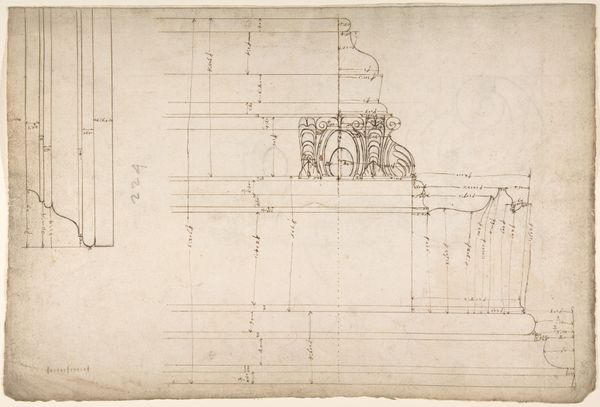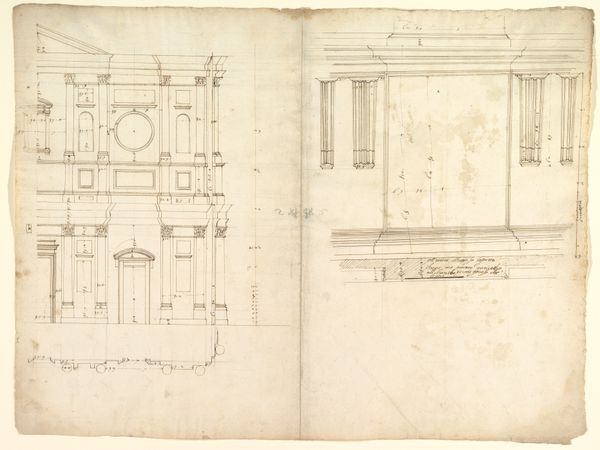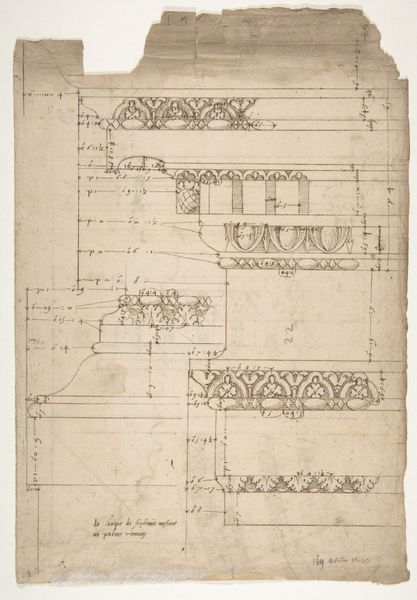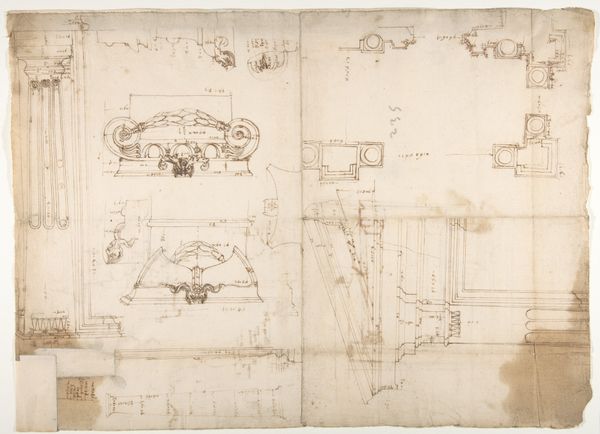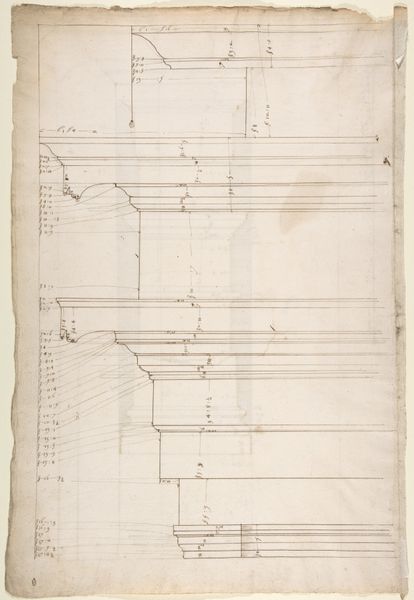
St Peter's, entablature profile; reflected ceiling details of the cornice, and profiles of column bases and pedestals (recto) St. Peter's, section through drum of model and entablature of upper story (verso) 1500 - 1560
0:00
0:00
drawing, print, paper, ink, architecture
#
drawing
#
medieval
# print
#
etching
#
paper
#
form
#
11_renaissance
#
ink
#
line
#
architecture
Dimensions: sheet: 23 x 17 5/16 in. (58.4 x 44 cm)
Copyright: Public Domain
Curator: Here we have an intriguing drawing rendered in ink on paper, a work entitled “St Peter's, entablature profile; reflected ceiling details of the cornice, and profiles of column bases and pedestals (recto) / St. Peter's, section through drum of model and entablature of upper story (verso)." It was created sometime between 1500 and 1560 by an anonymous artist. Editor: Immediately, the delicate lines suggest precision and restraint. Despite being a preparatory drawing, the intricate details speak volumes about the envisioned grandeur of St. Peter's. Curator: Precisely. Note the meticulous articulation of the entablature, capturing a critical element of classical architecture through these structural elements and the refined articulation of form. It gives one a feeling of being privy to the very architectural genesis. Editor: I’m particularly drawn to the ceiling details. The cornice and column bases—they echo patterns of power and the sacred. Floral imagery evokes classical precedents, almost whisper the legacy and aspirations linked with St. Peter's as it connects with Christianity. Curator: Absolutely. The very selection of ink and paper itself suggests permanence. These details, frozen on paper, take on a weight and a resonance—becoming documents for a future, intended to last. Editor: In many ways, the drawing itself transforms into an iconic representation of the basilica. These profiles speak less of functionality and more about ambition, the physical and metaphorical building of St. Peter's representing the earthly ambitions of divine authority. Curator: And indeed, one finds in its clean lines a certain divine quality as the symmetry itself alludes to the mathematical harmonies underpinning both classical and Renaissance ideals. There is order in what may appear at first glance as chaos. Editor: Ultimately, this isn't merely a plan, it’s a visualization of both the human capacity to build, and faith. Curator: Quite right. An intersection of vision, structure, and a symbol rendered into a tangible form. Editor: An evocative start of an imposing monument.
Comments
No comments
Be the first to comment and join the conversation on the ultimate creative platform.
